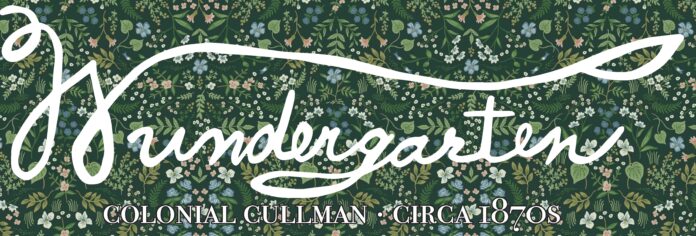Easter holidays in Colonial Cullman of the 1870s, the time of our folktale, “WUNDERGARTEN,” were celebrated as they were in Germany, the homeland of most of the county’s residents. It was both the joyful day of resurrection on the Christian church calendar, and the giddy, free-floating happiness of springtime arriving.
Good Friday (Karfitang) and Easter Saturday (Ostersamstag) were quiet days with no church bells. However, around sundown on Easter Eve, our folktale hero, Fritz, enjoyed one of his favorite celebrations of the spring traditions: OSTERFEUER (Easter bonfire).
This very old ritual in the German culture harkens back to the early Middle Ages when Christians adopted the centuries-old, pagan woodlands ceremony and weaved it into their customs. After a long winter, the German Americans throughout Cullman County came together around the OSTERFEUER to get reacquainted and catch up on the news.
OSTERFEUER would have been lit by a priest from Cullman County’s Sacred Heart of Jesus Catholic Church. Dry lumber scraps and bits of wood were collected, and the congregation arrived with bundles of kindling in their wagons. Much of the firewood was from months-old, dried Christmas trees the celebrants brought from their homes.
After the fire was torched, the priest would light the “Paschal” candle to be carried to the village church. This heralded the beginning of a new Easter vigil and celebrated the rebirth of Jesus Christ of Nazareth, the “Light unto the World.”
OSTERFEUER is a symbol of Earth’s fertility for farmers and gardeners and works in a literal sense, as well. Once safely extinguished, ashes from the Cullman County bonfire were scattered over the meadows to fertilize the sandy, oft eroded soil.
The gardens, meadows and trees would flower and leaf out at Eastertime at the Ruehl farm in “WUNDERGARTEN.” Hellebores bloomed even through a late dusting of snow in Alabama Hill Country. Crocuses, snowdrops and fragrant hyacinths would burst into beauty from the bulbs our gardener hero, Fritz, planted the previous fall. Yellow billowing branches of forsythia and perky buttercups lent their golden rays of sunshine.
OSTERFEUER on Holy Saturday traditionally meant outdoor dining with German beer, mulled wine and grilled meats. There were no jubilant bells ringing until Easter Sunday morning, but this evening gathering brought smiles, laughter, warmth and hope.
CELEBRATING IN THE WUNDERGARTEN – This storytelling culinary series imagines tasty, traditional foods from the recipe box our heroine, Frau Ruehl, brought with her from Germany when she relocated to what is present-day Cullman County, Alabama. Here is a simple but delicious treasure from an OSTERFEUER held at her strawberry farm. The celebratory flames on such pre-lamplight evenings could be seen from the village.
WUNDERGARTEN GRILLED LAMB CHOPS
(Source: allrecipes.com)
INGREDIENTS
- 1/2 cup olive oil
- 1/4 cup red wine vinegar
- 2 1/2 tbsp. minced, fresh rosemary
- 3/4 medium lemon, juiced
- 6 cloves garlic, minced
- 3/4 tsp. hot, German mustard (Dijon is okay)
- Salt to taste
- 4 (4-oz.) fresh lamb chops, boneless and trimmed to 1/8” fat, raw
DIRECTIONS
- Whisk olive oil, vinegar, rosemary, lemon juice, garlic, mustard and salt together in a large glass or ceramic bowl. Add chops and toss to evenly coat. Cover the bowl with plastic wrap and marinate in the refrigerator for 2 to 4 hours, or overnight.
- Preheat an outdoor grill for medium-high heat and lightly oil the grate.
- Remove chops from the marinade and shake off excess. Discard the remaining marinade.
- Grill chops until an instant-read thermometer inserted into the center reads at least 135F, 5 to 7 minutes per side.
HAPPY EASTER WEEKEND and AUF WEIDERSEHEN Y’ALL!
Find all columns in this series at www.cullmantribune.com/tag/celebrating-in-the-wundergarten.




















